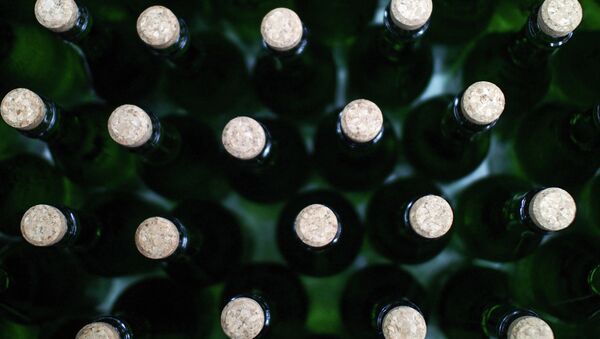CHISINAU, November 18 (Sputnik) — Moldovan farmers, suffering losses from the EU-Russia standoff, will see the trade embargo shrink their profits by a hefty $200 million, Moldovan Agriculture and Food Minister Vasile Bumacov told RIA Novosti Tuesday.
"Our [agricultural] exports to Russia used to be $197 million a year, which was 20 percent of our overall exports. Wine sales alone made up $40 million. Now this wine has to be sold elsewhere. We are also suffering approximately $20 million in apple sales losses," Bumacov said.
The Moldovan minister said the small ex-Soviet nation had been forced to divert its food exports to the EU market following Russia's decision to restrict food imports from the European Union in the wake of the Ukraine row.
Bumacov said sales on the EU market will not cover the losses, and Moldovan farmers will still need a lifeline to withstand the fallout effect of the Russian embargo.
"Local farmers have high hopes for substantial EU subsidies. They [farmers] need to invest into apple processing infrastructure such as cold storage, sorting and packing lines. We are sustaining losses because farmers are forced to seek out other markets," the minister said.
Following Russia's ban on Moldovan crop imports, the European Union introduced stimulus quotas for Moldovan agricultural products to help its impoverished economy stay afloat. But Bumacov emphasized the country could produce much more.
"The quotas that the Europeans offered us at first were simply ridiculous. They estimated our EU exports at around 20 tons and multiplied it by 10. As a result of very tough talks, we managed to bump this figure up first to 20,000 tons and then to 80,000 tons. But we can produce 10 times more," the Moldovan agricultural chief said.
After Crimea's reunification with Russia, the European Union introduced several rounds of sanctions against Russia, prompting Moscow to retaliate with a one-year ban in August on certain food imports from the 28 member states of the EU.
Although not a member, Moldova has actively sought to join the EU. An Association Agreement was signed June 27 between Moldova and the EU, which significantly deepened political and economic ties within the framework of the Eastern Partnership, a solidification of the EU and Eastern Europe and the Southern Caucasus nations.


